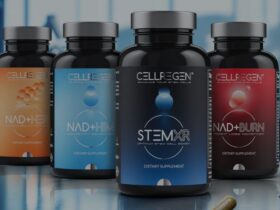No products in the cart.
Stem Cells for Heart Surgery Patients

An investigational stem cell therapy derived from patients own blood marrow significantly improved outcomes in patients with severe heart failure, according to a study from the Cedars-Sinai Heart Institute.
The research was presented today as a late-breaking clinical trial at the American College of Cardiology Scientific Sessions in Chicago.
This is an important step forward for heart patients in particular and for stem cell medicine in general, said Timothy D. Henry, MD, director of the Cardiology Division at the Cedars-Sinai Heart Institute and one of the studys lead authors. The results indicate that stem cells could be ushering in a bright new era in heart failure treatments.
Results from the trial are published today online by peer-reviewed medical journal The Lancet. Henry is a lead author along with Amit N. Patel, MD, MS, of the University of Utah. Cedars-Sinai also was one of the lead enrollers in the study.
Called ixmyelocel-T, the stem cell treatment developed by pharmaceutical company Vericel is made from a patients own bone marrow. A sample of marrow is extracted from the patient and sent to a laboratory, where it undergoes a two-week process to rapidly multiply the number of stem cells and enhance their quality. The stem cell-rich marrow is then infused into the patients heart muscle during a minimally invasive, catheter-based procedure.
Our intent is to increase the number of functioning cells in the heart muscle, which, in turn, strengthen the heart and result in alleviating or slowing the advance of severe heart failure, Henry said.
In the Phase II study, physicians followed 109 patients over a 12-month period. All were diagnosed with ischemic cardiomyopathy, a type of heart failure that usually results from a heart attack or coronary artery disease. The 58 patients who received the stem cell therapy showed a 37 percent lower rate of deaths, hospitalizations and worsening symptoms compared to 51 patients who received a placebo.
Results include:
- Of patients who received stem cells, 3.4 percent died compared to 13.7 percent of placebo patients who died.
- 37.9 percent of those who received stem cells were hospitalized with cardiovascular issues during the study. In comparison, 49 percent of patients who received the placebo were hospitalized during the study.
The Cedars-Sinai Heart Institute has a deep history of developing stem cell treatments for heart patients. In 2009, Eduardo Marbán, MD, PhD, director of the Heart Institute, led a team that completed the world’s first procedure in which a patient’s own heart tissue was used to grow specialized heart stem cells. The specialized cells were then injected back into the patient’s heart in an effort to repair and regrow healthy muscle in a heart that had been injured by a heart attack. Results, published in The Lancet in 2012, showed that one year after receiving the investigational stem cell treatment, heart attack patients demonstrated a significant reduction in the size of the scar left on the heart muscle after a heart attack.
Since that first infusion, physicians in the Heart Institute have commenced multiple stem cell trials for a variety of heart patients. They also inaugurated a regenerative medicine clinic to evaluate heart and vascular disease patients for participation in stem cell medical studies throughout the U.S.
Our focus is on finding each of our patients the most advanced treatment for their disease, Marbán said. Stem cells offer us an opportunity to improve cardiac care, expand treatment options and transform the future of heart medicine.
About the Cedars-Sinai Heart Institute
The Cedars-Sinai Heart Institute is internationally recognized for outstanding heart care built on decades of innovation and leading-edge research. From cardiac imaging and advanced diagnostics to surgical repair of complex heart problems to the training of the heart specialists of tomorrow and research that is deepening medical knowledge and practice, the Cedars-Sinai Heart Institute is known around the world for excellence and innovations.

















Leave a Reply